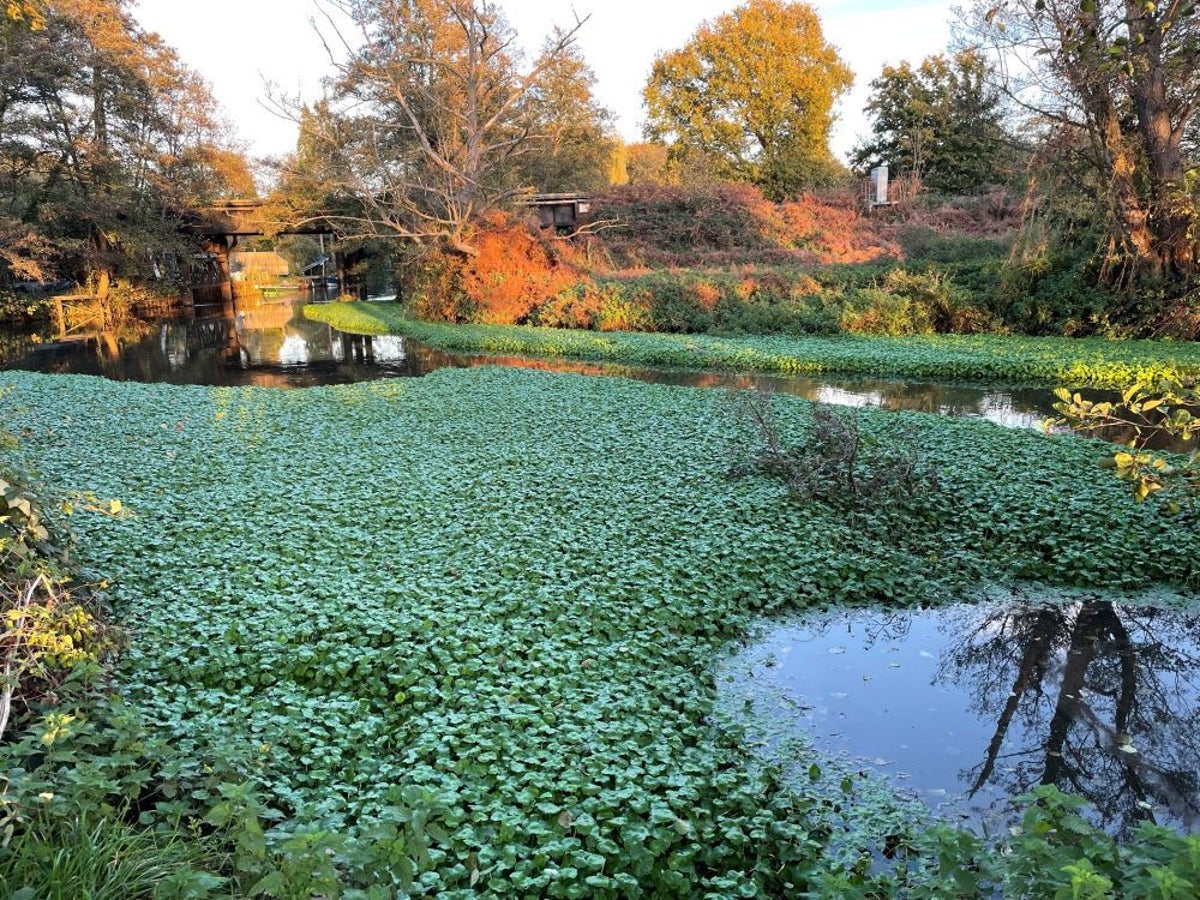
Japanese knotweed and other invasive species are costing the UK economy a staggering £4 BILLION every year, reveals a new study.
The cost has more than doubled in just 12 years, according to the report.
Scientists calculated that invasive non-native species (INNS) – such as giant hogweed and the aquatic water weed floating pennywort as well as grey squirrels – cost the UK economy the equivalent of 2,709 of Rolls-Royce’s most expensive model - the Phantom - annually.
But when species only covered by the GB Non-native Species Strategy are considered – for instance with fungi excluded from the estimate – the total cost was estimated to be less than half at £1.9 billion.
Researchers working from CABI’s centres in Egham, Surrey, as well as Switzerland and Kenya, found a 135 per cent increase in comparable costs since the last assessment was conducted in 2010.
Annual estimated costs in 2021 were £3.02bn, £499m, £343m and £150m to England, Scotland, Wales and Northern Ireland respectively.
The cost to forestry increased eight-fold, while the cost to aquaculture and agriculture increased by 139.5 per cent and 112.7 per cent, respectively.
Agriculture is the industry most affected, according to the report , published in the journal Biological Invasions, with estimated costs for the UK put at £1.088 billion followed by construction, development and infrastructure at £270m and tourism and recreation at £136m. The impact on forestry is estimated at £123m.
Scientists say there are currently around 2,000 INNS in the UK with 10 to 12 new species establishing themselves every year.
The list includes well-known established species such as the grey squirrel, killer shrimp, giant hogweed, mink and parakeets, as well as recently arrived, but highly impactful species such as the sea squirt Didemnum vexillum and ash dieback.
The fungus Hymenoscyphus fraxineus, which causes ash dieback disease, has become the costliest species in the past decade in the UK at an estimated £883.5m followed by followed by Japanese knotweed (£246.5m), rabbits (£169.7m), rats and mice (£84.4m), cockroaches (£69.8m) and deer (£62.9m).
As a group, fungi were the costliest to the UK, accounting for 52.9 per cent of the total estimated costs, followed by mammals, plants and terrestrial arthropods.
Lead author Dr Rene Eschen said, “Our research illustrates the usefulness of repeating economic cost assessments for INNS, as INNS are dynamic and their impacts vary.
“Repeat assessments like this one are important to maintain a focus on the impact of INNS, changes in impacts as a result of new or spreading species, as well as the identification of potential impacts of management or policies.”
The researchers recommend continued investment in sustainable, long-term solutions for widespread damaging species.
Co-author Dr Richard Shaw said, “This assessment again shows the important costs of INNS to the UK economy.
“Few effects of INNS specific management efforts can be seen in these results. However, they highlight the need to continue prevention and early detection, followed by eradication of the highest-risk species prior to establishment.”
In February, the GB Invasive Non-native Species Strategy, which draws on CABI’s research, was published to provide a strategic framework within which the actions of government departments and other bodies can be better co-ordinated.
Niall Moore, Defra Head of GB Non-Native Secretariat, said: “Invasive Non-Native species pose a serious threat to our natural environment and this Government is taking action through the recently launched GB Invasive Non-Native Species strategy, to protect our native animals and plants from INNS.”
He added: “CABI’s research, funded by Defra, reveals the significant financial impact of INNS.
“It is vital that we work together with researchers, scientists, and others, who are working to tackle INNS, to prevent their entry into and establishment in Great Britain and, when they do become established, to mitigate their negative impacts.”







